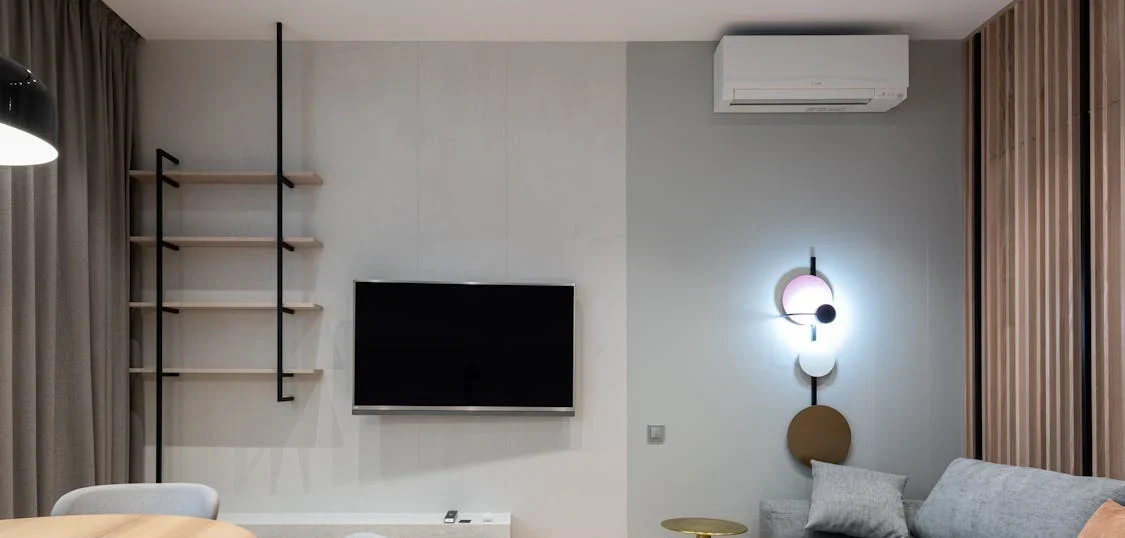
Understanding the Lifespan of Your Split AC: How Long Will It Last?
When considering a split system air conditioner for your home or business, one of the most common questions is, “What is the lifespan of a split AC?” Generally, a split system air conditioner that is installed correctly should last at least 10 years, but with proper maintenance, some units can continue to function effectively for 15 years or more. While these systems are designed for durability, factors like usage patterns, environmental conditions, and maintenance frequency can significantly affect how long your unit will last.
In this blog post, we will explore the factors that influence the lifespan of your split system AC, signs that it might be time for a replacement, and practical tips on how to extend the life of your unit to get the most out of your investment.
Average Lifespan of a Split System Air Conditioner
The typical lifespan of split system air conditioners ranges from 10 to 15 years. As the system ages, its performance may begin to decline, resulting in issues such as reduced cool air output, higher energy bills, and more frequent breakdowns. It’s important to note that this lifespan can vary depending on several factors, including how often the air conditioning unit is used, the local climate, and the frequency of maintenance. Additionally, older systems can contribute to poor indoor air quality due to accumulated dust and dirt in the unit.
The exact lifespan of most air conditioning units can vary depending on factors such as how frequently the system is used, the local climate, and regular maintenance. To avoid early issues and extend the life of your system, it’s crucial to regularly service and maintain the unit. If neglected, you may need to replace your air conditioner sooner than anticipated.
Factors That Influence the Lifespan of a Split System

Several key factors can influence the life span of a split system air conditioner. These include:
- Usage Patterns: Systems that are used frequently or run for long periods, particularly during extreme weather conditions, tend to wear out more quickly. If your split system air conditioner is operating constantly during the summer, for example, its components may experience more wear and tear, reducing its lifespan.
- Maintenance and Servicing: Ensuring that your air conditioner serviced regularly is one of the most critical steps in extending its lifespan. Proper servicing includes cleaning the air filters, checking refrigerant levels, and ensuring all parts are functioning properly. Skipping regular maintenance can lead to a dirty filter, clogged coils, and inefficient operation, all of which can shorten the unit’s life.
- Environmental Conditions: The environment in which your air conditioning system operates also plays a role in its longevity. Coastal areas with high salt content in the air, for example, can cause components in the outdoor unit to corrode over time, while excessive dust or pollution can cause blockages in both the indoor and outdoor units, reducing overall efficiency.
Signs It’s Time to Replace Your Split System AC
Even with regular split system maintenance, every air conditioning system has a finite lifespan. Recognising the signs that your unit is nearing the end of its life can help you avoid costly repairs and unexpected breakdowns. Here are some key indicators that it might be time to consider replacing your unit:
- Increased energy bills: If your energy bills are steadily rising without any changes in your usage patterns, it could be a sign that your system is no longer running efficiently and is working harder to maintain the desired temperature.
- Strange noises: If you hear unusual sounds such as rattling, buzzing, or banging, it could indicate a problem with the internal components of your air conditioner. These noises often suggest that your system is struggling and may require more than just a quick repair.
- Warm air instead of cool air: If your system is blowing warm air even when it’s set to cooling mode, it could indicate a refrigerant issue or a failing compressor, both of which are major signs that your split system may need replacing.
- Frequent breakdowns: If your AC unit is regularly breaking down or requiring major repairs, it may be more cost-effective to invest in a new air conditioner rather than continuing to spend money on frequent fixes.
Tips for Extending the Lifespan of Your Split System

While no air conditioning system lasts forever, there are steps you can take to maximise its longevity and efficiency. Here are some practical tips for extending the life of your split system air conditioner:
- Regular Maintenance: Schedule a professional air conditioning service at least twice a year to ensure your system is functioning at its best. This can include cleaning the air filters, checking the evaporator coil for dirt buildup, and inspecting all components for wear and tear.
- Keep the outdoor unit clean: Make sure that the outdoor unit is clear of debris such as leaves, dirt, and dust. Regularly inspect the unit and clean it to ensure proper airflow, which will help keep your system running efficiently.
- Use your air conditioner wisely: Avoid overworking your system by keeping your thermostat at a reasonable temperature, especially during peak seasons. Overuse can cause the system to wear out faster, leading to frequent repairs and a reduced lifespan.
- Invest in professional servicing: While regular cleaning and basic maintenance can be done at home, a qualified technician should inspect your system annually. A professional can identify and fix any small issues before they become larger, costlier problems, ensuring that your system runs smoothly for years to come.
Why You Shouldn’t Wait to Replace Your Old Split System
If your split system air conditioner is reaching the 10 to 15-year mark, it may be time to consider upgrading to a more energy efficient model. Newer AC units are designed to offer increased energy efficiency, better indoor air quality, and improved reliability, helping you save on both your energy bills and future repair costs.
Delaying the replacement of an old or failing system can lead to higher electricity bills, more frequent breakdowns, and reduced comfort levels in your home or business. Investing in a new, modern system can help you avoid these issues while providing consistent and effective climate control.
Ready to Maximise the Lifespan of Your Split AC?
If you want to get the most out of your split system air conditioner, it’s essential to stay on top of regular maintenance and know when it’s time for a replacement. Our expert team is here to help you maintain, repair, or replace your unit to ensure you continue enjoying cool air and maximum efficiency.
Contact us today to schedule your next air conditioning service or enquire about upgrading to a more energy-efficient system. Let us help you make the best choice for your home or business.






